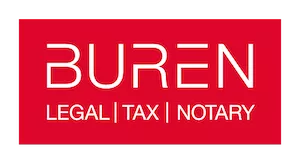- in South America
- within Privacy, International Law and Finance and Banking topic(s)
- with readers working within the Insurance industries
Introduction
On Thursday 6 June, last, the Supreme Court of the Netherlands ruled in a number of cases that the legislation to calculate the taxable income for personal income tax purposes with respect to income from savings and investments (so-called Box 3 income) - just as the Supreme Court ruled in its so-called Christmas Judgment on 21 December 2021- violates both the prohibition of discrimination and the right to peaceful enjoyment of possessions as laid down in international treaties, in case the taxable notional or deemed return on savings and investments is higher than the actual return. The Supreme Court also provided guidance on the definition of actual returns.
Legal background leading to Christmas Judgement
As of 1 January 2017, the regime determining the return on savings investments consisted of a notional return, instead of considering the actual return on savings and investment of taxpayers and the actual composition of assets of a taxpayer (e.g. stock, bank deposits, real property etc.). In the Christmas Judgement the Supreme Court ruled that in case the notional return is higher than the actual return, this regime violates the prohibition of discrimination as stipulated in article 14 of the European Convention of Human Rights (ECHR) and the protection ofright to peaceful enjoyment of possessions as stipulated in article 1 first protocol ECHR.
Restoration Act
Following the Christmas Judgement, the Dutch legislator introduced the Box 3 Restoration Act (Restoration Act). This Restoration Act should provide for legal restoration in line with the Christmas Judgement with respect to the years 2017 up to and including 2022. Despite that the Restoration Act also calculates the return on savings and investments on a notional base, the Restoration Act (to a certain extent) takes into account the composition of assets by dividing the categories of savings and investments in the categories ‘bank deposits', ‘other assets' and ‘debts', with each category having its own notional return. As per 1 January 2023, similar rules are included in the Box 3 Bridging Act (Bridging Act), which should bridge the gap between the introduction of a new system (which is expected at the earliest to apply as per 2027).
Judgement Supreme Court 6 June 2024
The Supreme Court ruled that the Restoration Act is still in violation of international treaties and therefore discriminatory. Although the Restoration Act generally solves the problem with individuals whose assets consist of bank deposits since the applied notional return percentage approximates the actual return, the Restoration Act does not resolve the discriminatory component in respect of other assets. Individual taxpayers investing their assets in riskier projects were taxed based on the average return on risky investments, regardless of how successful or unsuccessful they actually were. According to the Supreme Court, the Bridging Act is also discriminatory, as similar rules apply.
In the interest of legal unity and certainty, the Supreme Court has issued rules on the determination of the actual return. The Supreme Court ruled that the actual return includes interest, dividends, rent, realized and also unrealized gains and losses. Unrealized capital gains as a result of an increase in value of real property could therefore be subject to taxation for individuals investing in real property. Interest on debts is deductible for determining the actual return, however, this does not apply to other costs.
The Supreme Court rules that legal restoration should be given in cases in which the notional return is higher than the actual return. It is up to the taxpayer to prove that the actual return is lower than the notional return. Dutch tax law stipulates that no interest is paid by the Dutch tax authorities upon reduction of a tax assessment. According to the Supreme Court, as a general rule this this provision does not violate the ECHR.
What to do
As long as no final personal income tax assessments are imposed, the taxpayer's rights are in principle preserved. According to the Dutch tax authorities, there is no need to do anything for now, since the Dutch Ministry of Finance is studying the Supreme Court's rulings, and – after the Dutch tax authorities and the Dutch Ministry of Finance decide about the implementation of the legal restoration, which is expected in the course of this year – letters will be sent to the taxpayers affected by the Supreme Court's rulings, expected also later this year. Also, it is mentioned that a special form will be developed, the “statement of actual return” form. Having said that, if you would like to further discuss the impact of these Supreme Court's rulings, also for instance since no interest is paid in case tax assessment are reduced later on, please reach out to us.
Originally published 10 June 2024
The content of this article is intended to provide a general guide to the subject matter. Specialist advice should be sought about your specific circumstances.
[View Source]


